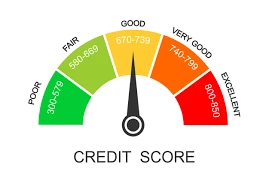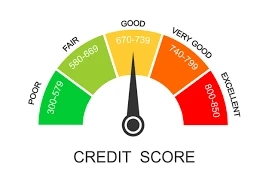Your credit score plays a major role in your financial well-being. Whether you want to apply for a credit card, secure a mortgage, or get the best loan terms, a good credit score is essential. In 2025, improving your credit score is more accessible than ever—with the right strategies and expert guidance.

In this article, we’ll explore the most effective ways to improve your credit score in 2025, stay financially healthy, and avoid common credit pitfalls.
What Is a Credit Score?
A credit score is a three-digit number that reflects your creditworthiness. It is calculated based on your credit report, which includes your borrowing history, repayment behavior, credit utilization, and more. Most lenders use FICO or VantageScore models, with scores ranging from 300 to 850.
Here’s a quick breakdown:
- Excellent: 800–850
- Very Good: 740–799
- Good: 670–739
- Fair: 580–669
- Poor: 300–579
The higher your credit score, the better your chances of loan approval and favorable interest rates.
1. Check Your Credit Report Regularly
The first step to improving your credit score is knowing where you stand. Request a free credit report from AnnualCreditReport.com. In 2025, consumers are entitled to one free report per week from each bureau (Experian, Equifax, and TransUnion).
Look for inaccuracies such as:
- Incorrect account balances
- Duplicate accounts
- Fraudulent activity
- Missed payments you actually made
Dispute errors promptly, as they can severely damage your score.
2. Pay Bills On Time — Every Time
Payment history makes up 35% of your FICO score. Even one missed payment can lower your score significantly.
Tips for staying on track:
- Set up automatic payments for credit cards and loans
- Use calendar reminders for due dates
- Contact lenders if you anticipate late payments
Timely payments demonstrate financial responsibility and boost your credit score steadily.
3. Keep Your Credit Utilization Below 30%
Credit utilization refers to how much credit you’re using compared to your limit. Experts recommend keeping your credit usage under 30%. For example, if you have a $10,000 credit limit, try to use no more than $3,000.
Lower utilization = higher credit score.
Tips to reduce utilization:
- Pay off high balances
- Request a credit limit increase
- Spread out charges over multiple cards
4. Don’t Close Old Credit Accounts
Length of credit history accounts for 15% of your credit score. Closing old accounts, especially those in good standing, can shorten your credit history and reduce your overall credit limit—both of which can hurt your score.
Keep old accounts open even if you don’t use them frequently. If there are annual fees, ask the issuer to switch you to a no-fee version.
5. Use a Credit Builder Loan or Secured Credit Card
If you’re rebuilding credit or just starting out, a credit builder loan or secured credit card can be a valuable tool.
- Credit builder loans allow you to build credit while saving money
- Secured credit cards require a refundable deposit and help establish a payment history
Make sure your activity is reported to all three major credit bureaus.
6. Limit Hard Inquiries
Hard inquiries occur when you apply for a loan or credit card. Each inquiry can drop your score by a few points and stay on your report for up to 2 years.
To minimize impact:
- Avoid applying for multiple credit lines in a short time
- Shop for loans (e.g., mortgage or auto loans) within a 14–45 day window to count as one inquiry
- Use prequalification tools that only trigger soft inquiries
7. Diversify Your Credit Mix
Lenders like to see a healthy mix of credit types—credit cards, personal loans, auto loans, mortgages, etc. Your credit mix accounts for about 10% of your score.
Don’t open new accounts just to diversify, but if the need arises (e.g., for a car or home), managing multiple credit types responsibly can help improve your score.
8. Be Patient and Consistent
Building or repairing credit is not an overnight process. With patience and consistent effort, your credit score will improve.
Continue to:
- Pay on time
- Reduce debt
- Monitor your credit reports
- Avoid unnecessary new credit
Each positive step adds up and can lead to long-term financial benefits.
Bonus Tip: Use Experian Boost and Similar Tools
Experian Boost and similar programs allow you to add on-time utility and phone bill payments to your credit report. In 2025, new tools powered by AI and open banking can help include non-traditional payment histories to give your credit score a helpful nudge.
Explore:
- Experian Boost
- UltraFICO
- Rental reporting services
These tools are particularly useful if you have a limited credit history.
Conclusion
Improving your credit score in 2025 is not just possible—it’s entirely achievable with the right approach. Whether you're recovering from past mistakes or building from scratch, following these expert strategies will put you on the path to a higher credit score and greater financial freedom.
Remember: good credit opens doors. Take control of your credit today and build a better financial tomorrow.


